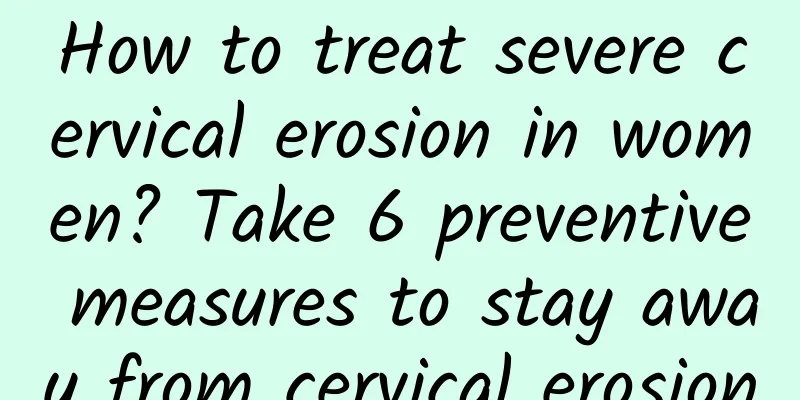Do endometrial polyps require surgery?

|
Whether endometrial polyps require surgery depends on the size, number, symptoms, and potential risk of malignancy of the polyps. If the polyps are large, numerous, cause symptoms, or are suspected of becoming malignant, surgical removal is usually recommended. Endometrial polyps are benign growths on the endometrium. Many women become concerned when they discover that they have endometrial polyps during a physical examination, wondering whether surgery is needed. In fact, whether surgery is needed depends on the specific situation. If the polyps are small and do not cause any symptoms, such as irregular bleeding, dysmenorrhea or infertility, the doctor may recommend regular observation and not rush to surgery. However, if the polyps are large or there are many of them, they may cause some symptoms, such as irregular menstruation, excessive menstrual flow, irregular vaginal bleeding, etc., and may even affect pregnancy. In this case, doctors usually recommend surgical removal. Endometrial polyps are benign in most cases, but there may be a risk of malignant transformation in a few cases. If the doctor suspects that the polyps may become malignant during the examination, or finds atypical cell changes after a biopsy, the polyps need to be completely removed surgically and further pathological examinations are performed. Some women are found to have endometrial polyps in the case of long-term infertility. At this time, surgical removal of the polyps can improve the intrauterine environment and increase the chance of conception. Therefore, if you find that you have endometrial polyps, you should consult in detail and decide whether you need surgery according to the doctor's advice. If the polyps are small and do not cause any symptoms, such as irregular bleeding, dysmenorrhea or infertility, the doctor may recommend regular observation and not rush to surgery. However, if the polyps are large or there are many of them, they may cause some symptoms, such as irregular menstruation, excessive menstrual flow, irregular vaginal bleeding, etc., and may even affect pregnancy. In this case, doctors usually recommend surgical removal. Endometrial polyps are benign in most cases, but there may be a risk of malignant transformation in a few cases. If the doctor suspects that the polyps may become malignant during the examination, or finds atypical cell changes after a biopsy, the polyps need to be completely removed surgically and further pathological examinations are performed. Some women are found to have endometrial polyps in the case of long-term infertility. At this time, surgical removal of the polyps can improve the intrauterine environment and increase the chance of conception. Therefore, if you find that you have endometrial polyps, you should consult in detail and decide whether you need surgery according to the doctor's advice. If the doctor thinks that surgery is not necessary for the time being, medication can be used for conditioning. Commonly used medications include: progesterone tablets, GnRH agonist injections, etc. Be sure to use medications as prescribed by the doctor and do not purchase and use them on your own. |
<<: What does perimenopause mean?
>>: What are the symptoms of endometriosis?
Recommend
It turns out that eating vegetables first and then meat to lose weight is wrong! Famous weight loss doctor: Eating dietary fiber first can increase appetite
There are many diet instructions on the Internet ...
What should I do if my menstruation keeps coming early?
What should I do if my menstruation keeps coming ...
Can pelvic peritonitis in women be cured?
Pelvic peritonitis is a type of pelvic inflammati...
Can an ovarian cyst go away on its own?
Can ovarian cysts go away on their own? Typical s...
Keep away the cold and lose weight in winter? You can easily move at home
It is freezing cold in winter, and many women are...
What are the causes of uterine fibroids? What are the people who are prone to uterine fibroids?
In recent years, uterine fibroids have become mor...
What kind of situation belongs to vaginitis?
What kind of situation belongs to vaginitis? It i...
How is Bartholinitis transmitted?
How is Bartholinitis transmitted? Bartholinitis o...
What are the treatments for vulvar itching?
Almost all women of childbearing age have experie...
What are the good methods for diagnosing cervical warts?
Many hospitals are similar in diagnosing cervical...
How to treat wild mugwort to prevent dysmenorrhea? How to eat wild mugwort?
How to treat wild mugwort to prevent dysmenorrhea...
Misunderstandings about Dysmenorrhea
Dysmenorrhea, also known as menstrual pain, refer...
How does Traditional Chinese Medicine treat premature ovarian failure?
How does Traditional Chinese Medicine treat prema...
A-mei eats seafood to lose weight? Doctor: May affect liver and kidney
The female singer A-mei's body shape has chan...
Will women who don't have sex for a long time get uterine fibroids?
Women who do not have sex for a long time will no...









